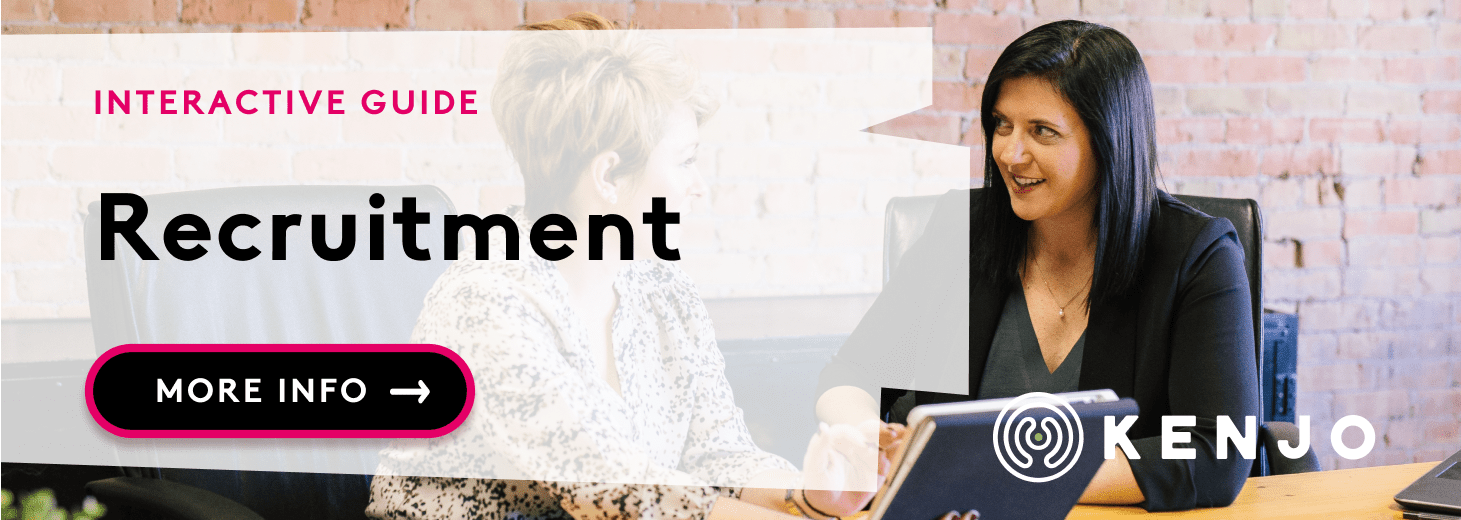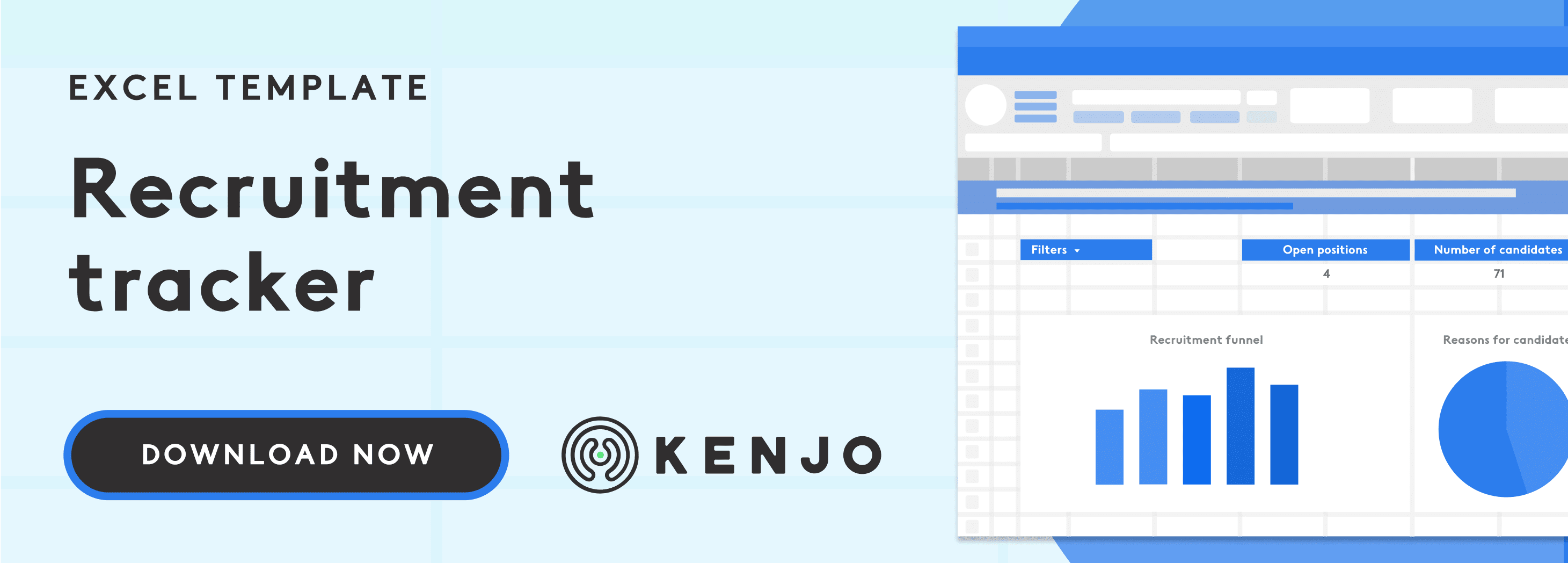What should you ask when you are interviewing a candidate for a job role? Preparing a list of good interview questions will ensure you compile enough information to make the right decision and have a smooth recruitment selection process.
How many times have you recruited someone, only to find out they’re not a good fit a few months down the line? Many of these occasions can be avoided by asking carefully chosen questions in the interview.
Here we explain how to compose the interview questionnaire, and which subjects you can explore to glean the information you need.
The importance of asking the right questions
We usually consider three key elements when deciding whether or not to recruit someone.
- The candidate’s CV.
- How the candidate comes across in the interview.
- The responses given to the questions asked during the interview.
At the end of the process, the person who has outperformed their rivals in these three areas is normally selected.
As we can see, the interview, and the questionnaire in particular, is a core piece of the decision-making puzzle. Drafting a thorough list in advance helps us steer the interview towards the information we need to make the right choice.
If we stick to the typical interview questions, even without going into depth, we will be able to pick out candidates who are clearly unsuitable. But to find the best fit, we need to dig much deeper, and for this, we need to spend time beforehand preparing a comprehensive question plan.
If not, we run the risk of making the wrong decision and discovering after a few months that our candidate does not live up to expectations.

Questions to ask in an interview
When we’re deciding which questions to ask in an interview, we can group them according to what we are looking to find out, for example, the candidate’s qualities and weaknesses, level of experience, their current circumstances, etc.
Below, we’ve put together a list of interview questions grouped by category:
Ice-breaker questions for the start of the interview
It’s always a good idea to start the interview with easy questions to make the candidate feel comfortable and encourage them to loosen up.
- Tell me a little about yourself. Give them the opportunity to talk informally about who they are, their work experience, etc.
- Why are you interested in this position? Start to gather details about their motives and interests.
- What do you know about our company? It’s an easy and predictable question, but it will give you an idea of whether they’ve bothered to do any research.
- What do you like to do in your free time? Find out more about the individual and read into their answer.

Questions to get to know the candidate’s personality
This set of questions aims to get to know the candidate better and evaluate their interpersonal abilities – or soft skills.
- What is your biggest defect or weakness? Judge how honest a candidate is and their level of self-awareness.
- If you won the lottery today, would you come into work tomorrow? This tells us whether the job itself is important to this person or if it’s all about the money.
- Where do you see yourself in five or ten years? Here we can cover more details about their plans, interests, and ambitions.
- What is your life goal? The answer to this question says a lot about the candidate’s priorities and values.
- How would you describe your ideal life? This question will give you an idea of whether the candidate’s expectations are in line with what the company can offer.
Questions to assess the candidate’s ability to overcome obstacles
Problem-solving, the ability to work under pressure and rise above challenges are relevant skills for almost any position. Gauge your interviewee’s capacity to cope or excel in these situations with the following questions:
- Can you tell me about a challenge or conflict you had to deal with in your work and how you resolved it? This question will help you understand what the candidate considers as a challenge and how they resolved it.
- What is the biggest risk you’ve taken in a work context? For senior positions with high-level responsibilities, we need to know if the candidate is capable of taking risks or whether they prefer to stick to the safe option.
- Can you think of a time when you had to make an effort to learn something? This measures the candidate’s interest in continuous professional development and their capacity for learning.
- Tell us about a time when you made a mistake that you can now laugh about. This question probes the candidate’s sincerity and emotional intelligence to know when to apply a sense of humour to critical moments.
- How do you feel about working under pressure? A very direct question, but one that will give you an idea of their ability to manage stress or sensitive situations.
Questions to find out about their career history
This part of the interview aims to understand the candidate’s career history and why they currently find themselves actively looking for employment.
- Why did you leave your last job? Why were you let go? Why do you want to change your job? Adapt the question according to the situation but try to learn about their most recent work experience.
- How did you get your last job? Find out what the previous selection process was like.
- What could your last boss tell me about you? Complaining about your last job is never a good idea and does not reflect the candidate in a good light.
- What do you do to keep yourself up to date with sector developments? What was the last course you completed? Delve further into their hard skills or specific expertise for the role.
Questions about the post they are applying for
We can’t complete an interview without asking relevant questions about the post they have applied for.
- Why do you want to work at this company? It is important to understand what led them to apply for the job.
- What do you think your responsibilities would be? We need to know what the candidate think the post will involve, and flag if their expectations vary wildly from reality.
- What would you want to achieve in your first month? Judge whether the candidate will be comfortable taking the initiative in their own projects and hear their perspective on their role within the company.
- What is your main motivation? A candidate’s motivation is key to understanding if an employee will fit in with the company culture and whether they have a future in the business.
- What are your salary expectations? It’s a typical question, but it helps eliminate candidates aiming significantly higher than the position’s salary band.

Interview questions to avoid
We’ve looked at what to ask in a job interview and what the answer tells us in each case, but it is also important to highlight questions that are prohibited in any selection process. Generally, these are all related to the candidate’s personal life and therefore irrelevant in a work context.
These are:
- Do you have or plan to have children? Asking this question, whether you are interviewing a woman or a man, is utterly inappropriate. Personal questions are not a topic for discussion.
- Are you married? Do you have a partner? Asking about a person’s marital status is also an intrusion into their personal life.
- Do you have any illness or disability? Medical details are private, and the candidate is not obliged to share them.
- What is your political affiliation? Politics should not be dragged into a professional interview situation.
- What religion are you? Religion is another no-go interview subject and one that must not be considered when selecting a candidate.
.jpeg)



